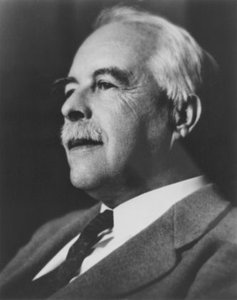A Quote by Henry Edward Armstrong
That henceforth the absurd game of chemical noughts and crosses be tabu within the Society's precincts and that, following the practice of the Press in ending a correspondence, it be an instruction to the officers to give notice "That no further contributions to the mysteries of Polarity will be received, considered or printed by the Society." His challenge was not accepted.
Related Quotes
Since the social victim has been oppressed by society, he comes to feel that his individual life will be improved more by changes in society than by his own initiative. Without realizing it, he makes society rather than himself the agent of change. The power he finds in his victimization may lead him to collective action against society, but it also encourages passivity within the sphere of his personal life.
You grow up and recognize that in any educated secular society, there's no excuse for ignorance. You have to recognize in yourself, and challenge yourself, that if you see racism or homophobia or misogyny in a secular society, as a member of that society, you should challenge it. You owe it to the betterment of society.
You grow up and recognise that in an educated, secular society, there's no excuse for ignorance. You have to recognise in yourself, and challenge yourself, that if you see racism or homophobia or misogyny in a secular society, as a member of that society, you should challenge it. You owe it to the betterment of society.
Before any man can be considered as a member of Civil Society, he must be considered as a subject of the Governour of the Universe: And if a member of Civil Society, do it with a saving of his allegiance to the Universal Sovereign. We maintain therefore that in matters of Religion, no man's right is abridged by the institution of Civil Society and that Religion is wholly exempt from its cognizance.
This society in which knowledge workers dominate is in danger of a new "class conflict" between the large minority of knowledge workers and the majority of workers who will make their livings through traditional ways, either by manual work... or by service work. The productivity of knowledge work - still abysmally low - will predictably become the economic challenge of the knowledge society. On it will depend the ability of the knowledge society to give decent incomes, and with them dignity and status, to non knowledge people.
The more you become a part of society, the less and less you are an individual, the less and less you are spontaneous - because the very membership in the society will not allow you to be spontaneous. You will have to follow the rules of the game. If you enter a society, you accept to follow those rules that the society is playing, or has decided to play.
Private property ... is a Creature of Society, and is subject to the Calls of that Society, whenever its Necessities shall require it, even to its last Farthing, its contributors therefore to the public Exigencies are not to be considered a Benefit on the Public, entitling the Contributors to the Distinctions of Honor and Power, but as the Return of an Obligation previously received, or as payment for a just Debt.
When the function of libraries is put in terms of their contributions to the community, people see their centrality. The challenge to us is to continue to help them see it in those terms to describe our larger purposes. We must assert that libraries are central to the quality of life in our society; that libraries have a direct role in preserving democratic freedoms. Free access to information and the opportunity of every individual to improve his or her mind, employment prospects, and lifestyle are fundamental rights in our society.
The challenge for Muslims in America is to respect the fears of ordinary people while resisting the exploitation of those fears by political parties, lobbies and sectors of the media. To meet this challenge, Muslims must reassess their own involvement, behavior and contributions in American society.
The great challenge which faces us is to assure that, in our society of big-ness, we do not strangle the voice of creativity, that the rules of the game do not come to overshadow its purpose, that the grand orchestration of society leaves ample room for the man who marches to the music of another drummer.






































